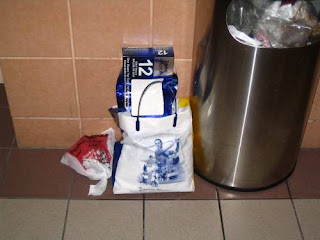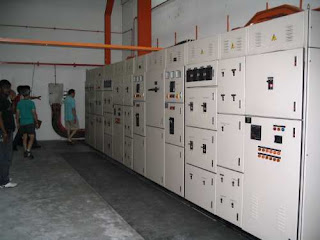Posted Date: Oct 15, 2009
By: HBA
Tips to consider when electing your council leader in your home community
The concept of a management body should be fairly clear to management corporation's council members or even many long-time strata property owners. For non-involved owners and residents, especially first-time owners , this form of common-interest 'governance' can be perplexing and, at times, bewildering, owing to the many parties (developers, managing agent, management council, other buyers) involved as well as with the legal duties of each party.
The concept of a management body should be fairly clear to management corporation's council members or even many long-time strata property owners. For non-involved owners and residents, especially first-time owners , this form of common-interest 'governance' can be perplexing and, at times, bewildering, owing to the many parties (developers, managing agent, management council, other buyers) involved as well as with the legal duties of each party.
Those who have never lived in an owners' corporation (condo, apartments, townhouses, gated communities) often do not understand the necessity of service charges, sinking fund, rules and volunteering to sit in the management council. For them, the 'management' may be perceived as little more than a nebulous entity that expects prompt payment on monthly invoices. This lack of understanding can lead to miscommunication and misunderstanding with the general perception that condo living is 'hard'.
Required by law
Call it by whatever name, Joint Management Body (JMB), Management Corporation (MC), Residents Association (RA), they are all basically a community association of property owners looking out for their best interest. In the first two, it is a requirement by law for strata titled property under the Strata Titles Act, 1985 and the new Building and Common Property (Management and Maintenance) Act, 2007 ('BCP'), whereas Residents' Association are voluntary organizations registered as a society.
The BCP Act now allows the formation of a joint management body from the start and owners do not have to wait till the first annual general meeting called by the developer to have a say in how their investment is managed and maintained.
Very often, only a small percentage of owners in condominiums or other types of strata titled development take interest in how their properties are managed. This leaves the handful of volunteers burned out after years of volunteering their services. There are also some who are interested but do not have the knowledge or skill to sit in the decision making council.
Challenging duties
In BCP, the joint management committee representing the purchasers' should number at a minimum five purchasers and a maximum 12. Whereas, in the Strata Titles Act, the Management Council should consist of, a minimum of three parcel owners and a maximum 14.
Although these are voluntary positions, it has to be taken seriously because it involves people and their investments. Most owners' corporations are headed by a leader who might also be the chairman at meetings. Strong leadership is an essential component of every successful owners' corporation. Very often, those who speak the loudest at meetings are elected which may not be sufficient for the long term.
A good leader can make a difference for an owners' corporation spirit. By considering the strength and qualities it takes to succeed, selecting your leader can in a very real way, lead to a more productive and happy community. Here are some tips on how to choose the leader of your home community.
‘A manager does things the right way and a leader does the right thing.’
A leader is someone who not only recognizes the ‘right thing’, but who can also motivate others to help him get the right thing done. Strong leaders should have skills, knowledge, and experience plus the abilities to motivate and command.
How do you recognise who has this special combination of insight and inspiration? There are personal characteristics that point to strong leadership style. Look for people who display these particular abilities:
• Ability to take criticism - No one in a position of power will escape criticism. Leaders have the ability to discern when criticism is valid and when it is not.
• An open mind - A leader must be able to approach a problem creatively. Perspective is an invaluable leadership tool. A council/committee that is afraid of change will stagnate.
• Communicate well - Explains, persuades and praises. Some volunteers are not particularly articulate, yet are valuable and productive. Leaders should be able to express ideas clearly and persuasively.
• Decisiveness - Taking a stand involves making mistakes. A good leader takes a stand and if an error is made, acknowledges it and makes a course correction.
• Enthusiasm - Enthusiasm is contagious. With it, council members are motivated to keep volunteering. Without it, voluntary work becomes a burden.
• Leads by example and promotes teamwork - Arrives on time, never shirks responsibilities and demonstrates good work habits. Instils cooperation among volunteers, making it easy for them to pitch in together. Pitches in alongside others and not just issue orders for others to follow-up.
• Listens to others - Source for and uses other's ideas and gives credit when credit's due.
• Problem solving skill - Uses knowledge and experience to help get the job done.
• Sensitivity - A genuinely caring leader inspires confidence in others. Confidence leads to results. Leaders delegate, give and seek constructive feedback. A leader knows how and when to give praise. Praise is the simplest and often the most valued form of reward. A leader knows how to criticise constructively: pointing out what is wrong without attacking personalities. A good leader seeks opinions and ideas from others.
• Sound judgment - Has the ability to identify and prioritise issues. A good leader then weighs alternatives carefully before making decisions.
• Takes responsibility - Never blames others for problems.
• Vision - A strong leader understands and promotes the community's best interests. Leaders set goals, communicate what's needed to achieve them and then move toward them.
• An open mind - A leader must be able to approach a problem creatively. Perspective is an invaluable leadership tool. A council/committee that is afraid of change will stagnate.
• Communicate well - Explains, persuades and praises. Some volunteers are not particularly articulate, yet are valuable and productive. Leaders should be able to express ideas clearly and persuasively.
• Decisiveness - Taking a stand involves making mistakes. A good leader takes a stand and if an error is made, acknowledges it and makes a course correction.
• Enthusiasm - Enthusiasm is contagious. With it, council members are motivated to keep volunteering. Without it, voluntary work becomes a burden.
• Leads by example and promotes teamwork - Arrives on time, never shirks responsibilities and demonstrates good work habits. Instils cooperation among volunteers, making it easy for them to pitch in together. Pitches in alongside others and not just issue orders for others to follow-up.
• Listens to others - Source for and uses other's ideas and gives credit when credit's due.
• Problem solving skill - Uses knowledge and experience to help get the job done.
• Sensitivity - A genuinely caring leader inspires confidence in others. Confidence leads to results. Leaders delegate, give and seek constructive feedback. A leader knows how and when to give praise. Praise is the simplest and often the most valued form of reward. A leader knows how to criticise constructively: pointing out what is wrong without attacking personalities. A good leader seeks opinions and ideas from others.
• Sound judgment - Has the ability to identify and prioritise issues. A good leader then weighs alternatives carefully before making decisions.
• Takes responsibility - Never blames others for problems.
• Vision - A strong leader understands and promotes the community's best interests. Leaders set goals, communicate what's needed to achieve them and then move toward them.
Here are some tips to consider when electing the leaders of your owners' corporation:
• A leader should understand the functions of the owners' corporation and be familiar with significant historical events of the community. Newcomers frequently make good volunteers. However, there are some situations which call for someone possessing a historical perspective. For example, if the corporation is in the midst of a sensitive litigation or a new management contract, a newcomer might detract by insisting on covering old ground again.
• How much interest has the candidate shown in the community and its undertakings? Has there been regular meeting attendance and participation in activities? If not, investigate the sudden interest. Be particularly careful about ‘one-issue’ candidates who volunteers because they dislike a certain contractor or are opposed to a recent service charges increase.
• A candidate should not have conflicting personal and professional commitments. For example, a high public profile candidate may have numerous commitments that mean infrequent participation.
• How much interest has the candidate shown in the community and its undertakings? Has there been regular meeting attendance and participation in activities? If not, investigate the sudden interest. Be particularly careful about ‘one-issue’ candidates who volunteers because they dislike a certain contractor or are opposed to a recent service charges increase.
• A candidate should not have conflicting personal and professional commitments. For example, a high public profile candidate may have numerous commitments that mean infrequent participation.
If all the above sounds to you like a mini-government, it is in fact one. If you own a property with common property, you automatically become a member, like it or not. Over time, we have noticed that home owners can be categorised into three groups; those who make things happen, those who wait for things to happen and those who asked what happened. Which group do you belong to? Choose your leaders well and prosper or wait for the next election at the annual general meeting and run for council member post unless situation demands that there shall be a extraordinary general meeting (EGM) requisition for new leadership.
The National House Buyers Association is a voluntary, non-governmental organisation that strives to protect house buyers' rights and interests. For more information, visit: www.hba.org.my
Source: http://www.iproperty.com.my/


















